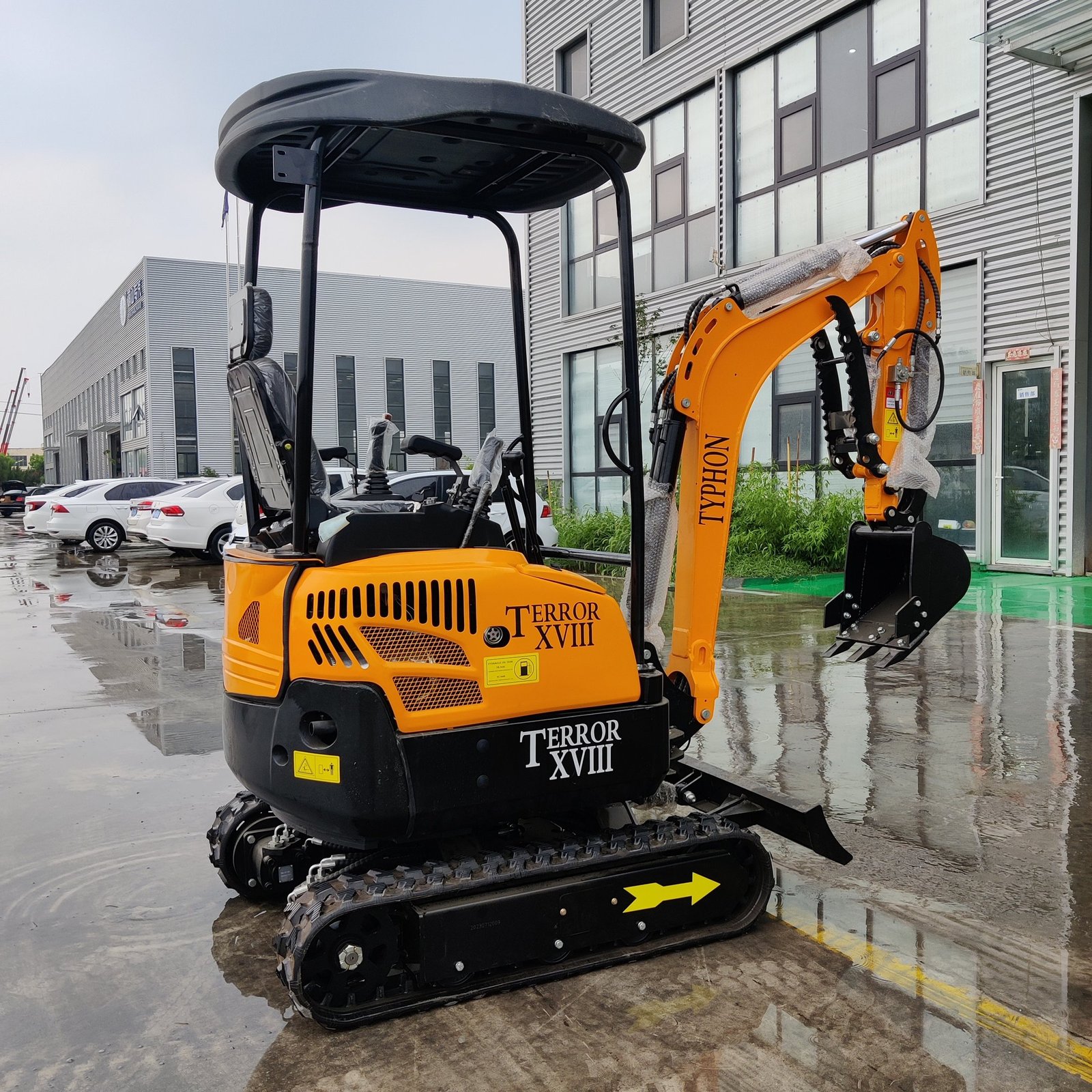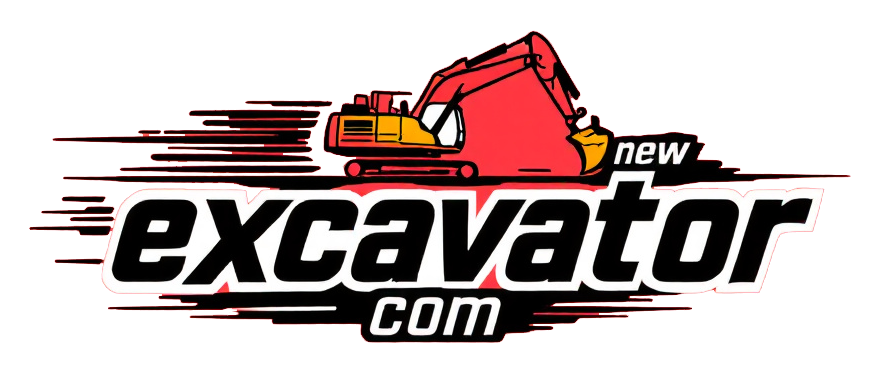
Introduction to Mini Excavator Maintenance
Regular maintenance guarantees both lifetime and best performance of mini excavators, which also guarantees These little but powerful equipment are essential in building, landscaping, and many other industries; so, owners and operators give their maintenance first priority. Regular inspections and timely maintenance greatly affect the dependability and efficiency of mini excavators; so, these factors help to reduce unexpected downtime and costly repairs.
The Mini Exciter’s performance enhances one of the key benefits of regular maintenance. Regular maintenance guarantees that every component is running as it should, so ensuring the operational efficiency of the equipment. For example, regular lubrication of moving components minimizing friction and wear helps to maintain the excavator’s digging capability and minimize power loss by keeping the hydraulic system in excellent form.
Moreover, normal maintenance significantly extends the lifetime of a tiny excavator. Regular inspections along with prompt replacement of worn-out components helps to identify any issues before they become major ones. This proactive approach ensures that the machine remains in good running condition for a longer period, therefore enhancing the return on investment even if its value remains constant.
Keeping a well-serviced compact excavator also helps to significantly lower downtime. Unplanned breakdowns can create delays and additional costs as well as stop projects. Regular tests and maintenance assist operators decrease the chance of unanticipated malfunctions, therefore guaranteeing that the mini excavator is always ready for use as required. This dependability is especially important in fields where project deadlines are few and any delays could have significant financial repercussions.
Basically, regular maintenance is what maximizes the performance, extends the lifetime, and lowers mini excavator downtime. By means of further investigation of specific maintenance problems in the future sections, we will be able to clearly observe how every component of maintenance contributes to the general dependability and efficiency of these vital appliances.
Hydraulic System Maintenance
The hydraulic system of a compact excavator is fundamental for its efficiency and running performance. Maintaining its greatest performance necessitates both precision and constant maintenance. First among the essential tasks is looking over the hydraulic fluid levels. Enough hydraulic fluid as well as assistance in preventing probable system damage define smooth functioning. Low fluid levels can lead to greater wear, overheating, and ultimately system failure.
Hose and connection inspection is another quite important element of hydraulic system maintenance. Hoses could finally display leaks, wear, or cracks compromising the overall hydraulic system. Frequent examinations enable the identification of any proof of deterioration or damage. Particularly pay close attention to fittings and connections since loose or corroded connections could cause fluid leaks and pressure loss. Tightening of slack connections and fast replacement of broken hoses help to prevent later costly repairs.
Maintaining the hydraulic system also rely significantly on filter replacement. Filters are designed to remove contaminants from hydraulic fluid, therefore ensuring the system functions without faults and with efficiency. Over time, debris can block filters, therefore reducing their performance. The recommendations of the manufacturer regarding filter replacement intervals are quite important. Regular filter changes stretch the hydraulic component lifetime and aid to maintain fluid cleanliness.
Ignoring the hydraulic system maintenance for a mini excavator could have disastrous effects. Poorly maintained hydraulics can cause erroneous operation, more running expenses, and unexpected downtime. First priority should be operator jobs like hydraulic fluid level checks, hose and connection inspections, and filter changes guaranteeing the durability and dependability of their mini excavators.
Engine Component Checks
Careful engine component maintenance helps a compact excavator to maintain its optimal lifetime and performance. Regular oil changes are essential necessary; they not only lubricate the engine components but also help in heat dissipation, therefore preventing overheating and resultant engine wear. The running conditions and use intensity of the excavator determine the frequency of advised oil changes; however, following manufacturer recommendations is essential to retain effective fuel efficiency and extend engine life.
Air filter tests and replacements are another quite vital aspect of engine maintenance. The air filter significantly lowers dust, dirt, and other particulates from entering the engine over time, therefore preventing significant damage. A blocked or polluted air filter hence restricting airflow results in lower engine performance and increased fuel consumption. Regular air filter checks and replacement as necessary ensures the engine receives clean air, therefore promoting good running and performance.
Maintaining engine performance depends equally on precise coolant level control. Controlling engine temperature and preventing overheating on strenuous jobs depend on the coolant, which is vitally important. Low coolant levels could cause engine overheating, which results in severe damage and costly repairs. Regular coolant reservoir checks and topping–up help to maintain the proper engine temperature and lower thermal stress on engine components.
Including these crucial maintenance tasks into your calendar can assure good fuel efficiency, drastically reduce engine wear and tear risk, and assist you avoid costly repairs. If you wish to maximize the lifetime of the engine of your mini excavator so it runs for years to come at least, regular oil changes, air filter checks, and coolant level monitoring should be given high importance.
Track and Undercarriage Care
Correct undercarriage and track maintenance determines the lifetime and best performance of mini excavators. Regular inspection and maintenance help the equipment to retain traction, stability, and overall operational efficiency, hence lowering downtime and costly repairs.
First and most crucially, for any signs of damage or too much wear, look at the tracks. Search for lugs lost, cuts, or cracks compromising the track’s integrity. Reduced grip and higher slippage resulting from damaged tracks may affect the operation of the mini excavator under certain ground conditions. Should issues arise, it is crucial to quickly fix the broken track segments to prevent future degradation.
Track tension is another key element of undercarriage maintenance. Good track tension reduces the likelihood of derailment by ensuring that the rails remain firmly in place, therefore providing stability. Although excessively tight tracks can create too much wear on the undercarriage components, loose tracks can produce slippage and inadequate control. Check and adjust the track tension often depending on manufacturer recommendations to ensure best performance.
Undercarriage of mini excavators is regularly exposed to dirt, rocks, and other waste, which, if ignored often accumulates and results in damage. Debris buildup can restrict machine motion and wear undercarriage components more heavily. It is advisable to clean the undercarriage following every use particularly in areas where trash and dirt are most likely to accumulate. A pressure washer can help to remove difficult debris and ensure that the undercarriage remains in good repair.
Including these maintenance tasks into a consistent schedule considerably enhances the running life and performance of the mini excavator. Priority track and undercarriage maintenance helps operators ensure their machines remain dependable and efficient, ready to tackle any job with confidence.
Adequate Lubrication
Maintaining a mini excavator mostly hinges on proper lubrication. Lubrication reduces friction between moving components; it also considerably extends machine lifetime, reduces wear and tear, and helps to prevent corrosion. The value of this maintenance task cannot be overestimated since neglecting lubrication could lead to more frequent repairs creating downtime and increased running expenditures.
Different lubrication sites demand care on a mini excavator. Important areas span the pivot points on the boom and arm, the slew ring, bucket pins, undercarriage sections including idlers and track rollers. Each of these sites has specific lubrication needs that must be met if best performance is ensured.
Using the recommended lubricants helps one to reach the best results. Usually, manufacturers offer advice on the appropriate lubricants for particular components. Typical decisions are general-purpose grease for very frictional areas and specialty lubricants for hydraulic components. Choosing the correct grade and kind of lubricant helps to prevent early breakdowns and maintains machine parts in their original condition.
Still another key factor is lubrication frequency. Especially in times of maximum activity, most mini excavators require daily lubrication of highly used components. Less important regions could merely call for weekly or monthly attention. Following the lubrication schedule described in the manual will enable operators to modify for weather conditions and usage intensity as required. Regular inspections help one to identify any parts that might need more frequent lubrication.
Maintaining a tiny excavator basically hinges on enough lubrication. Following suggested lubricating methods allows operators to make sure their equipment stays in good operational condition, therefore enhancing production and reducing the likelihood of costly repairs.
Timely Servicing and Professional Inspections
Following manufacturer recommended service intervals will help you to maintain the optimal performance and extend the lifetime of your mini excavator. Regular maintenance done by qualified professionals ensures that every element is operating as it should. These professionals possess the skills to conduct thorough inspections, identify minor issues before they become more significant, and install necessary software upgrades thereby enhancing the operation of the machinery.
There are several benefits in following appropriate service schedules. Regular maintenance makes early wear and tear detection feasible, so helping to prevent unexpected breakdowns and costly repairs. On these examinations, technicians can uncover probable issues including electrical failures, hydraulic leaks, or engine flaws. Quick maintenance of these issues not only guarantees that your mini excavator keeps running and efficient but also helps to reduce downtime. This helps to save repairs costs.
Professional service also includes updating the software of the machine with the most recent versions. These updates could include enhancements in general excavator performance, safety features, and efficiency of the tool. Maintaining current with software updates ensures that your equipment satisfies the most recent industry requirements and performs at best performance.
Regular professional inspections can greatly improve the safety of the Mini Excavator. Technicians can identify and address safety hazards include failing brakes or worn-out rails, therefore endangering the operator. Establishing a safe workplace and preventing accidents largely depend on ensuring that every safety mechanism is running as expected.
Including frequent maintenance and expert inspections into the running of your mini excavator ensures its dependability and durability. Trusting your equipment to skilled professionals will help you be sure it stays in top condition and ready to satisfy any project need. This determines how safe and successful any project is handled.
